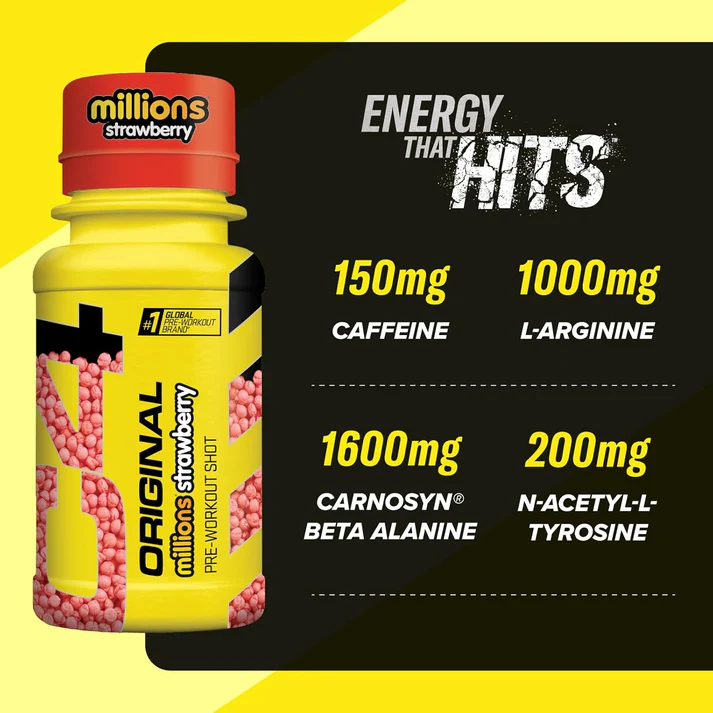Introduction
When it comes to maximizing the benefits of pre-workout supplements, timing is everything. Taking your pre-workout at the right time can mean the difference between a lackluster workout and a high-energy, focused session where you push past your limits. But what exactly is the ideal timing? Let’s break down how timing impacts energy levels, performance, and results.
What is Pre-Workout?
Pre workout supplements are designed to enhance workout performance, providing energy, focus, and endurance. Most pre-workouts contain a blend of caffeine, amino acids, nitric oxide boosters, and other performance-enhancing ingredients. These ingredients work together to improve blood flow, delay fatigue, and heighten alertness, making pre-workouts popular among fitness enthusiasts.
Why Timing Matters for Pre-Workout
The timing of your pre-workout supplement intake can significantly influence its effectiveness. Some ingredients work almost instantly, while others take time to activate. Delaying or hastening your pre-workout timing can lead to an energy peak or slump right when you need to be at your best.
When is the Best Time to Take Pre-Workout?
Experts typically suggest taking pre-workout 30 minutes before starting your session. This timing allows the ingredients, especially caffeine, to be absorbed into the bloodstream and start working. However, this can vary depending on individual factors and the workout type.
Pre-Workout Timing Based on Workout Type
Cardio Workouts
For cardio, especially high-intensity interval training (HIIT), taking pre-workout 15–20 minutes before starting can yield optimal results. This timing helps provide a quick energy boost essential for explosive cardio routines.
Strength Training
Strength-focused training often demands a more gradual energy release. Taking pre-workout about 30–45 minutes before lifting sessions ensures a steady energy flow and enhanced muscular endurance.
Endurance Training
For longer workouts, like running or cycling, timing can be adjusted slightly. Taking pre-workout around 30–45 minutes before can help sustain energy over a prolonged period.
Factors that Influence Pre-Workout Timing
Different factors, such as your metabolism, pre-workout meal timing, and caffeine tolerance, can impact the ideal timing. Fast metabolisms may experience effects more quickly, while those sensitive to caffeine might benefit from a slight delay.
Morning vs. Evening Workouts: Timing Differences
Morning workouts can benefit from pre-workout as a jumpstart to the day, but evening workouts require special attention to avoid impacting sleep. Taking pre-workout too late can lead to sleepless nights, so be mindful of timing when training in the evening.
Should You Take Pre-Workout on an Empty Stomach?
Some people find that taking pre-workout on an empty stomach leads to quicker effects, while others feel jittery. If you’re sensitive, a small snack before your pre-workout can balance its intensity without sacrificing energy.
How Long Does Pre-Workout Last?
The duration of pre-workout effects varies. Caffeine can last up to four hours, while amino acids and nitric oxide boosters peak around 1–2 hours. Knowing this helps you anticipate when you’ll need the most energy.
Signs You’re Taking Pre-Workout at the Wrong Time
If you’re feeling jittery, experiencing a crash, or lacking energy at key moments, you might need to adjust your timing. A few tweaks can often align the energy boost with your workout’s demands.
Customizing Pre-Workout Timing to Fit Your Routine
Experimenting with different timing can reveal your ideal window for peak performance. Keep track of how you feel, noting when energy peaks or wanes, and adjust as needed.
The Science Behind Timing and Pre-Workout Ingredients
Caffeine and stimulants activate quickly, while nitric oxide boosters and amino acids may take longer. Understanding these elements helps in aligning timing with the workout phase that needs the most energy.
How to Maximize Pre-Workout Effectiveness
Lion’s mane Mushroom UK, Proper hydration, a balanced diet, and complementary supplements can enhance your pre-workout experience. Staying hydrated boosts the circulation of pre-workout ingredients, making them more effective.
Common Mistakes with Pre-Workout Timing
Common timing mistakes include taking pre-workout too early or too late, leading to energy crashes or jitteriness. Listen to your body’s signals to avoid these pitfalls and get the most out of your supplement.
Conclusion
Finding the optimal time to take your pre-workout supplement can transform your workout experience. Experiment, listen to your body, and adjust based on your workout type to achieve optimal results.

